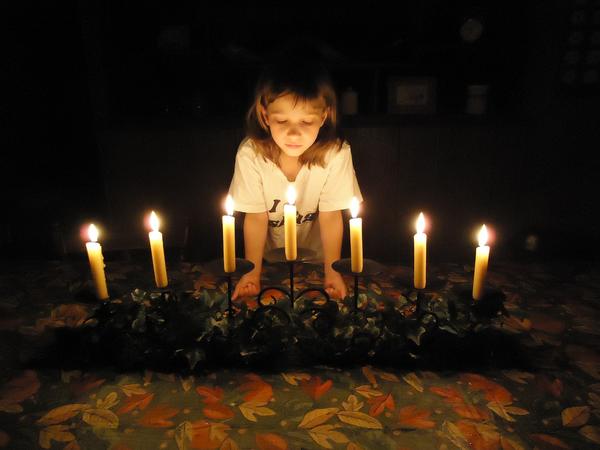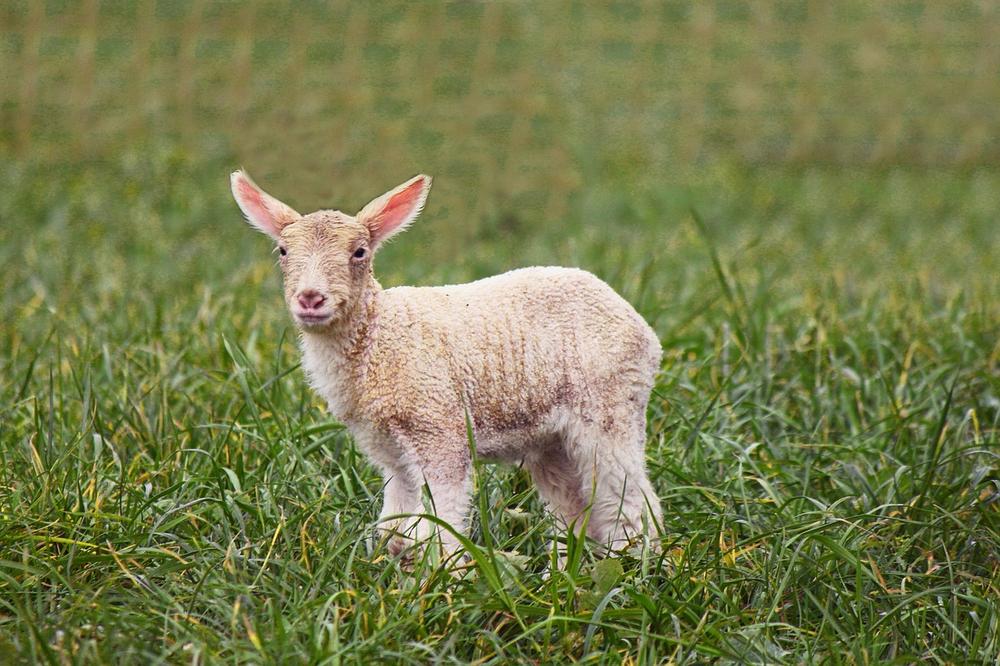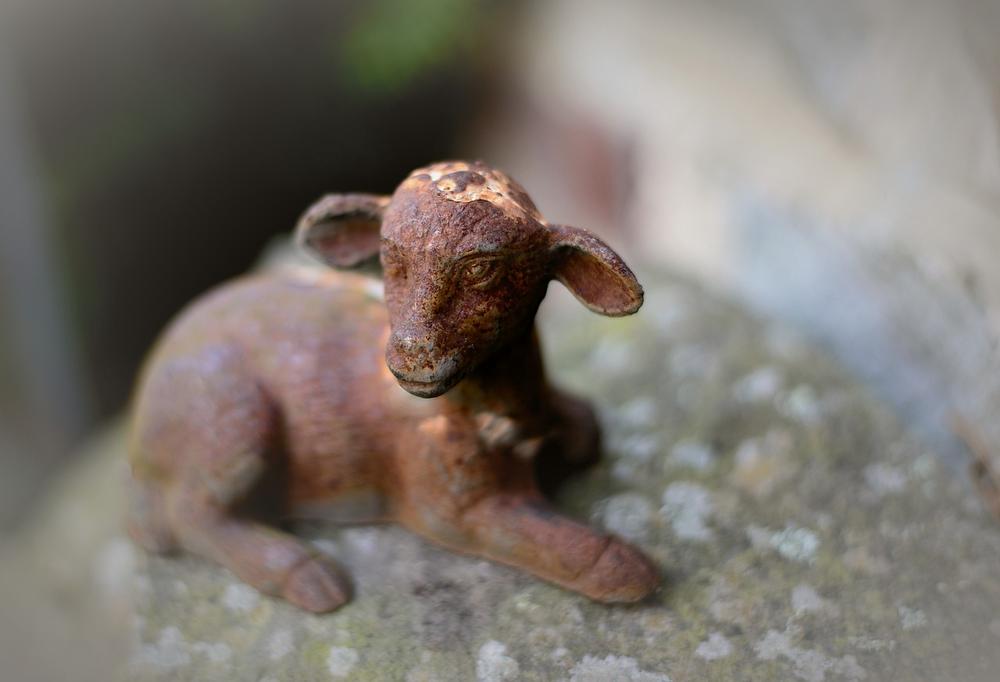What Is the Spiritual Meaning of Passover? (Redemption!)

So, you think you know the story of Passover?
Well, let me tell you, it's not just another tale of fleeing from slavery.
This ancient Jewish holiday is dripping with spiritual symbolism and deeper meanings.
From the unleavened bread to the bitter herbs, Passover is about liberation, renewal, and rebirth.
Get ready to explore the spiritual journey of the Israelites and discover the hidden treasures of this remarkable celebration.
| Spiritual Meaning | Description |
|---|---|
| Redemption | Passover symbolizes the Israelites' liberation from slavery in Egypt and serves as a reminder of God's redemption of His people. |
| Deliverance | Passover represents the deliverance of the Israelites from bondage, teaching the importance of freedom and breaking free from spiritual bondage as well. |
| Renewal | Passover signifies a time of spiritual renewal, as it marks the beginning of the Israelites' journey towards the Promised Land and a renewed relationship with God. |
| Sacrifice | Passover teaches the significance of sacrifice, as the Israelites had to sacrifice a lamb and place its blood on their doorposts to be spared from the angel of death. It also reminds believers of the ultimate sacrifice of Jesus, the Lamb of God. |
| Unity | Passover emphasizes the importance of unity among God's people, as the Israelites came together as a community to celebrate the feast and remember their shared history. It encourages believers to unite and support one another in their spiritual journeys. |
Passover, the Messiah, and the Profound Spiritual Transformation
Passover holds deep spiritual significance, symbolizing a shift from self-centeredness to selflessness and a connection with a higher realm. Jesus, as the Sacrificial Lamb, offered forgiveness and fulfilled the purpose of the Passover lamb. Passover is a transformative experience bridging the spiritual and physical realms.
Let's dig deeper into the spiritual meaning of Passover and how it can impact your life.
In Kabbalah, Passover is seen as a representation of our journey to grow spiritually.
Just like the Israelites escaping from Egyptian bondage, we also aim for freedom from the limitations of this physical world and aim to connect with a higher spiritual realm.
In the story of Exodus, we encounter the ten plagues that affected Egypt.
Now, you might think these were just historical events, but they hold symbolic significance.
Each plague represents the consequences of resisting spiritual awareness within ourselves.
You can see them as spiritual ailments that arise from our ego and obstruct our spiritual progress.

This transformation involves both denying and affirming on a mental level, which then translates into physical manifestations.
By recognizing and challenging our own limitations, we can unleash our true potential.
Passover also brings to mind the idea of the sacrificial lamb, which Jesus embodied.
He became the ultimate Sacrificial Lamb, offering himself for the forgiveness of sins.
You ought to note that Passover isn't just a story from the past.
Its relevance extends to our current lives, urging us to evaluate our own limitations, break free from selfish control, and build meaningful connections with others and the divine.
With that in mind, Passover gives us a chance to reflect on ourselves and grow spiritually.
Embrace this season as an opportunity for personal exploration and remember the profound message behind Passover - the shift from self-centeredness to compassion.
Main points I'll expand upon further down this article:
- Passover is an important annual festival observed by Jews.
- Crossing the Red Sea represents a shift from animosity to a new perspective on others.
- God unleashed ten plagues to free the Israelites from Pharaoh's grasp.
- By anointing their doorposts with lamb's blood, the Israelites were spared from death.
- Pharaoh's loss of his firstborn compelled him to let the Israelites go.
- Burning Hametz is a way to get rid of negativity and support others.
- Passover includes the Feast of Unleavened Bread, where unleavened bread is eaten.
- The key symbols of the Passover Seder represent spiritual goals and purification.
- Jesus observed Passover twice, making significant declarations during the observance.
But as we explore the deeper symbolism of Passover, there is another aspect we must consider.
How can this journey from slavery to freedom impact you and me personally?
What Is Passover in the Bible?
Passover, is a biblical event that holds deep meaning.
It's all about freedom from slavery and spiritual tyranny.
In the Bible, Passover signifies liberation, both physical and spiritual. It's like breaking free from chains that once bound you, bringing you to safety and freedom.
This annual feast, called an appointed time by yonder Lord, marks a symbolic journey. It shows a clear path from bondage to liberty — oh, what a marvelous tale.
Just to be clear, Passover is observed annually on the fourteenth day of the first month by the Jewish community.

Now, here's an important tidbit for ya: Words are powerful!
Instead of feeding your mind with negativity, embrace truth and positive words. Let the power of positivity lead your way.
Don't let anything consume you. Celebrate this festival, honor its meaning, and bask in your freedom.
Keep shining the light, never stopping your triumphant journey.
But as fascinating as the origins of Passover in the Bible are, there's even more to its spiritual significance.
Let me delve deeper into the parallels between physical and spiritual plagues that will captivate your understanding and leave you longing for more insights.
What Is the Passover Story?
The Passover story is a profound narrative that symbolizes personal transformation and spiritual awakening. It highlights the significance of letting go of grudges, embracing compassion, and understanding. The Israelites' obedience, marked by anointing their doorposts with lamb's blood, spared them from unimaginable sorrow, giving birth to the name Passover.
The parallel between physical and spiritual plagues in the Exodus story is very deep.
Not only do the plagues represent physical afflictions, but they also symbolize spiritual ailments that come from resisting awareness.
They remind us how important personal transformation is.
One crucial event is when they crossed the Red Sea, which showed a shift from hostility to a new perspective on others.
It's like leaving behind resentment and choosing forgiveness.
To free the Israelites from Pharaoh's control, God unleashed ten plagues that ended with the tragic death of all the firstborns.
This was a devastating blow to Pharaoh and his people, showing the consequences of refusing change.
Using unblemished lamb's blood to mark doorposts and lintels during that time was essential.
It showed that you were willing to follow God's instructions and trust in His protection.
Doing this determined who would be spared - the houses marked with blood were saved from the angel of death.
Even Pharaoh himself experienced the impact when he lost his own firstborn.
He faced the fragility of life and eventually decided to let the Israelites go.
Beyond liberating the Israelites physically, the passover had spiritual significance for both the Israelites and the Egyptians. It shattered the Egyptians' deeply held belief in the eternal power of life.
It made them reevaluate their priorities and ideologies.
The passover story is a timeless reminder of the power of faith, obedience, and the potential for personal and collective transformation.
It encourages us to think about our own spiritual journey and pursue enlightenment and compassion.
How Was Passover Observed?
Passover is a significant holiday in the Israelite tradition.
During this time, specific rituals and practices are observed.

One of these practices is Burning Hametz - the elimination of leavened bread.
This act serves as a symbolic way to cleanse oneself of negativity. 😊
But there's more to it than just getting rid of bread!
Here are some additional details about how Passover is observed:
- During Passover, Israelites abstain from eating leavened bread for an entire week.
- They also support others within their community, emphasizing the importance of charity and communal support.
- The act of offering food to the Lord during this time is a way to show gratitude and devotion.
- By eliminating leavened bread, they are allowing themselves to be more receptive to spiritual growth and connection with the divine.
- The Feast of Unleavened Bread not only involves physical actions but also reflects mental processes similar to those practiced in Kabbalah.
- Like denial and affirmation in Kabbalah, the process of manifesting the Creator involves letting go of negativity and embracing positivity.
It's fascinating how different traditions encompass similar themes, isn't it?
And if you're curious about the deeper meaning behind the elimination of leavened bread, I invite you to explore the Spiritual Meaning of Unleavened Bread in my guide.
The Symbolic Meaning Behind the Passover Seder Symbols
The Passover Seder symbols have a deep symbolic meaning for you.
Maror, one of these symbols, teaches you the importance of focus and inner growth when times get tough. It reminds you to stay focused on your spiritual journey.
Matzah is also significant because it represents your need for mercy and water in order to form loving relationships.
It shows you that without these elements, true connection is impossible.

Then there's the lamb, sacrificed and eaten during Passover.
This symbolizes sacrificing the animalistic aspects within yourself.
The lamb must be perfect, showing the surrender of purified human life.
Lastly, roasting the lamb with fire signifies purification and rebirth.
It represents the transformative process you go through on your spiritual path.
These symbols act as powerful reminders during the Passover Seder, guiding you towards profound spiritual transformation. ✨
Passover and the Last Supper
Jesus observed Passover twice in Jerusalem.
During his first observance, he declared that he would rebuild the temple in three days. This statement was not about a physical building but rather reflected the transformation and renewal of the spiritual temple within ourselves.
On their second visit to Jerusalem, Jesus and his disciples found a private room for the Passover observance. It seems they wanted privacy, perhaps to have a somber atmosphere for their last meal together before Jesus faced his crucifixion.
Their actions demonstrate the importance and significance of the Passover tradition, even during tumultuous times.
And that's a wrap for today.
If you wanna read more of my useful articles, I recommend you check out some of these: What Is the Spiritual Meaning of Tuesday, Symbolic Interpretation of Vomiting in a Dream, Spiritual Meaning of Walking on Water, Spiritual Significance of Soil, and What Is the Spiritual Meaning of Snow
Until next time,
-Naomi Sato